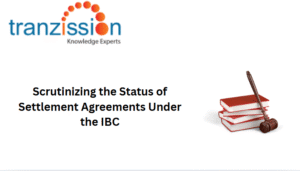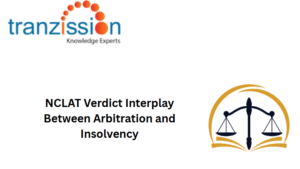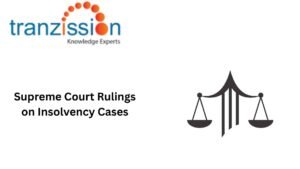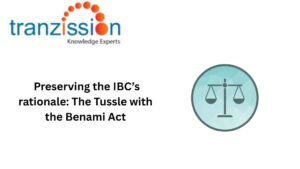
Section 31 of RERA – Filing of Complaints with the Authority or Adjudicating Officer

Table of Contents
The Real Estate (Regulation and Development) Act, 2016 (hereon forward known as “Section 31 of RERA”) provides a platform to file complaints and seek redressal for issues with developers, ensuring transparency and accountability in the real estate sector. It primarily aims to reduce project delays by ensuring developers adhere to timelines and provide timely updates to homebuyers.
Understanding Section 31 of RERA – Right to File Complaints
What Does Section 31 of RERA State?
Section 31 provides homebuyers, allottees, and other stakeholders the right to file complaints against developers for non-compliance with Section 31 of RERA provisions. Complaints can be filed with the Section 31 of RERA Authority or the Adjudicating Officer based on the nature of the dispute.
Who Can File a Complaint Under Section 31?
According to Section 31 of RERA, the following can file a complaint as per this section:
- Homebuyers: If you are a buyer of a property, this provision allows you to act against developers.
- Allottees: Anyone who has been allotted a property in a real estate project can file a complaint
Associations of allottees representing multiple homebuyers: A group of homebuyers facing common issues, such as delayed possession or false promises, can collectively file complaints.
Financial institutions or investors with claims against developers: Financial institutions or investors can file complaints if they have claims against developers for non-compliance with the Act or its rules and regulations.
Insolvency professionals handling distressed real estate companies: Insolvency professionals (IPs) who are handling insolvency cases against real estate companies or homebuyers can file a complaint under this section.
Read more : Section 104 – Preparation of List of Creditors
Types of Complaints That Can Be Filed Under Section 31
The common types of complaints filed under section 31 are:
- Builders delivering homes on time is one of the most common complaints.
- If a developer makes changes to the project layout or design without the designer’s consent, it violates RERA provisions.
- Some builders impose extra charges that were not disclosed earlier.
- Developers sometimes advertise features or amenities they do not provide.
- If the materials used in construction do not meet promised standards, buyers can file a complaint.
Legal Framework & Procedure for Filing Complaints Under Section 31
Step-by-Step Guide to Filing a Complaint with RERA Authority
A complainant has to first identify the relevant Section 31 of RERA Authority. This involves determining the state where the property is located and finding the corresponding RERA Authority’s website.
The next step involves visiting the official website and looking for a “complaint registration” or similar option. The complainant needs to register on the website by providing your details, such as name, email ID, and phone number and create a login ID and password for future use.
Once logged in, the complainant needs to locate the option to file a complaint. The form needs to be carefully filled out with all the necessary details, including their name and contact information, details of the developer and the project, a clear description of the nature of the complaint, and any relevant dates and timelines.
After submitting the online form, the complainant needs to pay the required fee for the Adjudicating Officer cases.
The complainant will be assigned a specific RERA complaint number, which will be used to monitor the status of the case.
Timeline for Complaint Resolution Under RERA:
As per section 29(4), the period within which the authority shall expeditiously dispose of any questions that come up before the authority is 60 days.
Judicial Interpretation & Key Rulings on Section 31
Supreme Court & High Court Decisions on RERA Complaints:
In the landmark case of Vishal Chelani & Ors. vs. Debashis Nanda and Ors. the Supreme Court ruled that homebuyers, even those with RERA decrees, are treated as financial creditors under the Insolvency and Bankruptcy Code, 2016 (IBC) and cannot be treated differently. The Supreme Court has upheld that RERA’s complaint mechanism is binding, and developers must comply with orders issued by RERA authorities.
RERA vs. IBC: Which Law Prevails in Real Estate Insolvency Cases?
Homebuyers are considered as ‘financial creditors’ under the IBC. When a real estate company is undergoing insolvency under IBC, homebuyers’ claims must be submitted before the resolution professional (RP) as financial creditors. However, complaints under Section 31 can still be pursued for regulatory compliance and consumer protection purposes. While both the IBC and RERA aim to protect homebuyers, their objectives can clash. The Supreme Court in the Pioneer case ruled that in the event of a conflict between RERA and IBC, the IBC would prevail. The IBC’s section 238 is a non-obstante clause, reinforcing the primacy of insolvency law.
Case Study: Impact of Section 31 Complaints on CIRP:
The Pioneer’s Case is crucial as the court upheld the constitutional validity of the IBC Amendment, 2018, that granted “real estate allottees” the status of financial creditors, clarifying that RERA and the IBC can co-exist, with the IBC potentially prevailing in case of conflict. Further, there have been major cases involving a real estate company, and the RERA Authority’s complaint findings influenced the Committee of Creditors (CoC) decision-making process in the resolution plan.
Challenges & Limitations in Filing Complaints Under Section 31
Delays in Complaint Resolution:
The process can be time-consuming, with potential delays in investigations, hearings, and obtaining orders. Further, filing a complaint requires detailed documentation, including the agreement to sell, conveyance deed, application form, and other relevant documents. While RERA aims for speedy redressal, high case volumes often lead to delays.
Overlap Between RERA and IBC Proceedings:
Homebuyers face legal complexities when navigating both RERA and the IBC because RERA focuses on project completion and timely possession, while the IBC prioritizes financial creditor resolution. This leads to legal complexities and delays the process under the two legislations.
Compliance Challenges for Insolvency Professionals:
Insolvency professionals managing distressed real estate companies must ensure that pending RERA complaints do not conflict with the IBC objectives.
Best Practices for Homebuyers & Insolvency Professionals in RERA Disputes
Homebuyers can strengthen their RERA complaints by completing their documentation, including agreements, payment receipts, and project details, and engaging with associations of allottees for collective action.
IPs need to ensure that homebuyers’ claims are accurately represented in the CoC and work with RERA Authorities to integrate project completion commitments in resolution plans.
Legislators should encourage dispute resolution through mediation and settlements, and may successfully prevent prolonged legal disputes.
Future of Section 31 – Strengthening Consumer Protection in Real Estate
To enhance the coordination between Section 31 of RERA and the IBC, policymakers must prioritize a harmonious framework that protects homebuyers, while ensuring efficient insolvency resolution, potentially through project-specific insolvency proceedings and streamlined enforced mechanisms. To address non-compliance with the IBC or RERA, policymakers need to strengthen penalties. Homebuyers can now file complaints against builders or developers directly through the official website of their state, however, there still needs to be a digital transformation of the RERA complaint process to streamline transparent grievance experience for homebuyers.
Conclusion
Section 31 of the RERA Act lets homebuyers and other stakeholders file complaints against builders for non-compliance with the law. This section gives individuals the right to approach the Real Estate Regulatory Authority or an adjudicating officer to resolve disputes. When facing proceedings under the IBC, RERA plays a crucial role in ensuring developer accountability for non-compliance, ultimately protecting homebuyers’ interests. The IBC amendments aim to address the specific issues faced by homebuyers in insolvency cases, such as allowing project-wise resolution and empowering the resolution professional to transfer ownership and possession of completed units to allottees.





